Current Students
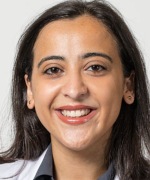
Alma Mater: UC Los Angeles
Research Interests: Cancer, genetics, drug resistance, translational medicine
About Mai Abdusamad:
Mai grew up in Portland, OR. She graduated from UCLA with a major in biochemistry and a minor in biomedical research. At UCLA, she developed an interest in cancer biology while working in the lab of Dr. Jorge Torres where she characterized the role of a novel protein in cell division and its implications in cancer. After graduation, Mai joined the Broad Institute as a research associate and Broad Cancer Genomics Scholar in the lab of Dr. Todd Golub. At the Broad, Mai worked on multiple projects that contribute to the generation of a Cancer Dependency Map—a comprehensive preclinical reference map linking genetic features of cancers to vulnerabilities to identify targets for therapeutic discovery. Outside of the lab, Mai enjoys hiking and watching foreign dramas.
Publications:
Malone C.F., Dharia N.V., Kugener G., Forman A.B., Rothberg M., Abdusamad M., Gonzalez A., Kuljanin M., Paolella B.R., Dumont N., Mancias J.D., Younger S.T., Root D.E, Golub T.R., Vazquez F., and Stegmaier K. Selective modulation of a pan-essential protein as a therapeutic strategy in cancer. Cancer Discovery. April 2021
Cohen-Sharir Y., McFarland J., Abdusamad M., Marquis C., Tang H., Ippolito M.R., Bernhard S.V., Laue K., Malaby H.L.H, Jones A., Kazachkova M., Lyons N., Nagaraja A., Bass A.J., Beroukhim R., Santaguida S., Stumpff S., Golub T.R., Storchova Z., and Ben-David U. Aneuploidy renders cancer cells vulnerable to mitotic checkpoint inhibition. Nature. January 2021; 590(7846): 486-491
Evans C, Olson J, Mondal B, Kandimalla P, Abbasi A, Abdusamad M … Shapiro C, Levis-Fitzgerald M, Jaworski L, Lopatto D, Clark IE, Johnson T, and Banerjee U. A functional genomics screen identifying blood cell development genes in Drosophila by undergraduates participating in a course-based research experience. G3 (Bethesda). January 2021;11(1).
Neggers JE, Paolella BR, Asfaw A, Rothberg MV, Skipper TA, Yang A, Kalekar RL, Krill-Burger JM, Dharia NV, Kugener G, Kalfon J, Yuan C, Dumont N, Gonzalez A, Abdusamad M., Li YY, Spurr LF, Wu WW, Durbin AD, Wolpin BM, Piccioni F, Root DE, Boehm JS, Cherniack AD, Tsherniak A, Hong AL, Hahn WC, Stegmaier K, Golub TR, Vazquez F, and Aguirre AJ. Synthetic Lethal Interaction between the ESCRT Paralog Enzymes VPS4A and VPS4B in Cancers Harboring Loss of Chromosome 18q or 16q. Cell Rep. December 2020;33(11):108493.
Gholkar A.A., Schmollinger S., Velasquez E.F., Lo Y.C., Cohn W., Capri J., Dharmarajan H., Deardorff W.J., Gao L.W., Abdusamad M. Whitelegge J.P., and Torres J.Z. Regulation of Iron Homeostasis Through Parkin-mediated Lactoferrin Ubiquitylation. ACS Biochemistry. August 2020; 59(32), 2916-2921.
Enache O.M., Rendo V., Abdusamad M., Lam D., Davison D., Pal S., Currimjee N., Hess J., Pantel S., Nag A., Thorner A., Root D., Doench J., Vazquez F., Beroukhim R., Golub T., and Ben-David U. Cas9 activates p53 and selects for p53-inactivating mutations. Nat Genet. May 2020; 7(52), 662–668; (Cover Article).
Please refer to my LinkedIn Profile for more information.
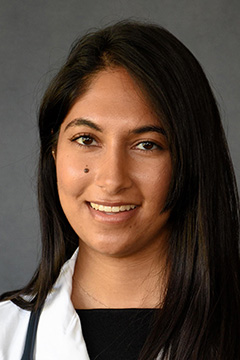
Shruti graduated from the University of Michigan in 2018, where she majored in Neuroscience and Evolutionary Anthropology. At Michigan she spent 2.5 years working with Dr. Paul Jenkins and Dr. Andrew Nelson studying the underlying mechanisms of bipolar disorder in order to develop better therapeutic targets. After graduating she joined the Heit Lab at Stanford University, and her research with Dr. Jeremy Heit focused on murine models of acute ischemic stroke. She also performed brain microscopy imaging using CLARITY to study developmental cerebral vasculature patterning and vascular changes during ischemic stroke. Outside of science, Shruti enjoys traveling, cooking, and listening to podcasts.
Research Interests:
Shruti is broadly interested in neuroscience, with a focus on psychiatry. She would like to study mechanisms underlying psychiatric disease with the ultimate goal of developing better pharmacological interventions for disorders such as depression, anxiety, schizophrenia, an bipolar disorder.
Awards:
2018-2019 University of Michigan Bonderman Fellow
Publications:
Gologorsky R, Arora S, Dua A. Negative-Pressure Wound Therapy to Reduce Wound Complications after Abdominoperineal Resection. Perm J. 2020;24:19.173. doi:10.7812/TPP/19.173
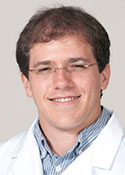
Brendan Cohn-Sheehy -MS4
Alma Mater: UC Berkeley
Thesis Advisor: Charan Ranganath, Ph.D.
MD/PhD Advisor: Michael Rogawski, M.D., Ph.D.
Graduate Group: Neuroscience
About Brendan Cohn-Sheehy:
Brendan has long been fascinated by the human brain, how it works, and how to treat its diseases. Brendan completed a B.A. in Psychology with Honors at UC Berkeley, along with human cognitive and neuroimaging research at UC Berkeley and UCSF. Early on at UC Davis School of Medicine, Brendan was the 2015-2016 President of the Neurology Student Interest Group. He completed his Ph.D. in Neuroscience from 2016 to 2021 under the mentorship of Charan Ranganath, Ph.D., and in collaboration with a stellar, supportive team of scientists who collaborated on behavioral and brain imaging studies of complex human memories. During his Ph.D., Brendan was awarded a Floyd and Mary Schwall Medical Research Fellowship and an NIH NRSA F30 individual fellowship from the National Institute on Aging, and he also co-organized the Seminar Outreach for Minority Advocacy (SOMA) seminar series. Outside of his clinical and research obligations, Brendan tries to play a bit of music and write fiction, while struggling to train two rambunctious little dogs.
Ph.D. dissertation:
The narrative architecture of events in episodic memory and the human hippocampus
Ph.D. publications:
Cohn-Sheehy, B. I., Delarazan, A. I., Reagh, Z. M., Crivelli-Decker, J. E., Kim, K., Barnett, A. J., Zacks, J. M., & Ranganath, C. (2021). The hippocampus constructs narrative memories across distant events. Current Biology. DOI:10.1016/j.cub.2021.09.013.
Cohn-Sheehy, B. I., Delarazan, A. I., Crivelli-Decker, J. E., Reagh, Z. M., Mundada, N. S., Yonelinas, A. P., Zacks, J. M., & Ranganath, C.(2021). Narratives bridge the divide between distant events in episodic memory. Memory & Cognition. https://doi.org/10.3758/s13421-021-01178-x
Cohn-Sheehy, B.I., Ranganath, C. (2017). Time regained: how the human brain constructs memory for time. Current Opinion in Behavioral Sciences 17, 169-177. doi:10.1016/j.cobeha.2017.08.005
Selected pre-Ph.D. publications:
Ossenkoppele, R., Cohn-Sheehy, B.I., La Joie, R., Vogel, J.W., Moller, C., Lehmann, M., van Berckel, B.N.M., Seeley, W.W., Pijnenburg, Y.A., Gorno-Tempini, M.L., Kramer, J.H., Barkhof, F., Rosen, H.J., van der Flier, W.M., Jagust, W.J., Miller, B.L., Scheltens, P., Rabinovici, G.D. (2015). Atrophy patterns in early clinical stages across distinct phenotypes of Alzheimer’s disease. Human Brain Mapping, doi:10.1002/hbm.22927.
Villeneuve, S., Rabinovici, G.D., Cohn-Sheehy, B.I., Madison, C.M., Ayakta, N., Ghosh, P.M, La Joie, R., Arthur-Bentil, S.K., Vogel, J.W., Marks, S.M., Lehmann, M., Rosen, H.J., Reed, B., Olichney, J., Boxer, A.L., Miller, B.L., Borys, E., Jin, L.W., Huang, E.J., Grinberg, L.T., DeCarli, C., Seeley, W.W., Jagust, W.J. (2015). Existing Pittsburgh Compound B–positron emission tomography thresholds are too high: statistical and pathological evaluation. Brain 138(7), 2020-33.
Shimamura, A.P., Cohn-Sheehy, B.I., Pogue, Brianna L., Shimamura, T.A. (2015). How attention is driven by film edits: a multimodal experience. Psychology of Aesthetics, Creativity, and the Arts, doi:10.1037/aca0000025.
Elman, J.A., Rosner, Z.A., Cohn-Sheehy, B.I., Cerreta, A.G., Shimamura, A.P. (2013). Dynamic changes in parietal activation during encoding: implications for human learning and memory. NeuroImage 82C, 44-52.
Elman, J.A., Cohn-Sheehy, B.I., Shimamura, A.P. (2012). Dissociable parietal regions facilitate successful retrieval of recently learned and personally familiar information. Neuropsychologia 51, 573-583.
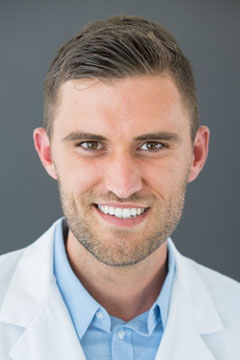
Alma Mater: UC Los Angeles
Thesis Advisor: Karen Moxon, Ph.D.
Graduate Group: Neuroscience
About Gregory Disse:
Greg is interested in the field of neuroengineering and implementing new technologies to both treat and understand various neurological conditions. Under Dr. Karen Moxon, he is specifically studying how the motor cortex encodes for postural control and how these cortical signals can be decoded to restore motor function after spinal cord injury through brain-computer interfaces. In his free time, he enjoys running, skiing, trying new restaurants, and traveling.
Awards and Fellowships:
2022 Presentation Award, Center for Neuroengineering & Medicine
2021 NSF Non-Academic Research Internships for Graduate Students
2020-2021 CSTC TL1 Predoctoral Research Training Award
Publications:
Dougherty JB*, Disse GD*, Bridges NR, Moxon KA. Effect of spinal cord injury on neural encoding of spontaneous postural perturbations in the hindlimb sensorimotor cortex. J Neurophysiol. 2021;126(5):1555-1567. doi:10.1152/jn.00727.2020. *Co-first authors.
Izadi A, Schedlbauer A, Ondek K, Disse G, Ekstrom AD, Cowen SL, Shahlaie K, Gurkoff GG. Early Intervention via Stimulation of the Medial Septal Nucleus Improves Cognition and Alters Markers of Epileptogenesis in Pilocarpine-Induced Epilepsy. Frontiers in Neurology. 2021; doi: 10.3389/fneur.2021.708957
Monzón, RA, Coury JG, Disse GD, Lum ZC. Bone Cement in Total Hip and Knee Arthroplasty. JBJS Reviews. 2019; 7(12):e6.
Hunter AM, Cook IA, Tartter M, Sharma SK, Disse GD, Leuchter AF. Antidepressant treatment history and drug-placebo separation in a placebo-controlled trial in major depressive disorder. Psychopharmacology. 2015; 223(20):3833-40.
Recent Conference Posters and Abstracts:
Disse GD, Nandakumar B, Moxon KA. Rat trunk motor cortex can be used as a control signal for spinal neuromodulation to maintain center of pressure after spinal cord injury. Poster, 9th Annual Neuromodulation Symposium, Minneapolis, MN. April 2022.
Disse GD, Dougherty JB, Bridges NR, Moxon KA. The rat hindlimb sensorimotor cortex encodes for postural perturbations after complete spinal cord injury. Poster, Society for Neuroscience Annual Meeting, Virtual. November 2021.
Disse GD, Nandakumar B, Moxon KA (2021). Trial-averaged neural trajectories display unique responses to unanticipated stimuli and can be used for online stimulus classification. Poster; Society for Neuroscience Global Connectome, Virtual. January 2021.
Disse GD, Bobinski M, Lechpammer M, Steele TO, Shahlaie K (2020). Ectopic Olfactory Neuroblastoma: A Case Report. Poster; North American Skull Base Society Annual Meeting, San Antonio, TX. February 2020.
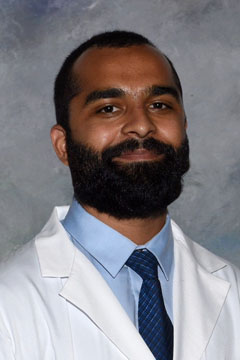
Wahed Firoz, MS1
Alma Mater: UC Davis
MD/Ph.D Advisor: Nicholas Kenyon, M.D.
About Wahed Firoz: Wahed spent most of his life on the east coast. He grew up in Pittsburgh, PA then moved to the Sacramento area, where he finished high school and attended UC Davis with a major in Biochemistry and Molecular Biology. As an undergraduate, he spent over two years in the lab of Dr. Mark Huising, studying rare subpopulations of beta-cells in the islets of Langerhans. Over the course of his undergraduate studies, he also developed an interest in immunology and spent two years working in the lab of Dr. Nicole Baumgarth after graduation. In the Baumgarth Lab, his interests in immunology grew as he studied B-cell responses after influenza infection and immunophenotyped mutant mouse strains as a part of the Knockout Mouse Project (KOMP).
Outside of studying and working, Wahed enjoys spending time with his friends and family. He also hopes to build upon his travel experiences and visit many more countries around the world.
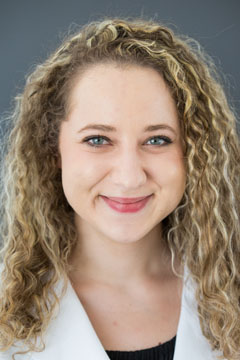
Alma Mater: University of Pennsylvania
M.S. in Chemistry, University of Pennsylvania
About Ariel Jacobi:
Originally from the East Bay, Ariel Jacobi studied the effects of D-serine on the NMDA receptor and associated proteins at the Children’s Hospital of Philadelphia. After graduating, she spent a year studying the reptilian brain in Gilles Laurent’s lab at the Max Planck Institute for Brain Research in Frankfurt, Germany. In her free time, she enjoys learning new languages and playing the piano.
Research Interests: Biochemistry of the brain, NMDA receptors, and psychiatric illnesses
Publications:
Tosches MA*, Yamawaki TM*, Naumann RK, Jacobi AA, Tushev G, and Laurent G. Evolution of pallium, hippocampus, and cortical cell types revealed by single-cell transcriptomics in reptiles. Science 360, 881–888 (2018).
Lin H, Jacobi AA, Anderson SA and Lynch DR. D-serine and serine racemase are associated with PSD-95 and glutamatergic synapse stability. Front Cell Neurosci, 10:34. 2016.
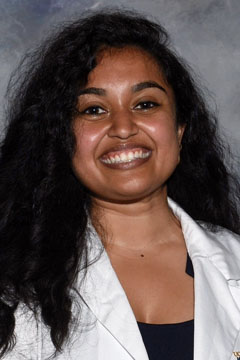
Nikita Mohapatra, MS1
Alma Mater: UC Berkeley
About Nikita Mohapatra: Nikita graduated from UC Berkeley in 2021 where she majored in Bioengineering with a minor in CS. Throughout her undergraduate career, she has been involved in research under the guidance of several incredible mentors from UC Berkeley, UC Davis, and California Northstate University. Outside of academics, she loves to teach, dance, hike, and watch football and basketball.
Research Interests: Nikita is generally interested in infectious disease research with global health applications. She would like to study underlying mechanisms of infectious diseases with the ultimate goal of developing effective and accessible treatment strategies for people across the globe.
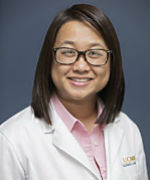
Ruth Lee- MS3
M.S. at UC Davis – Molecular, Cellular, & Integrative Physiology
About Ruth Lee:
Ruth is a proud UC Davis alum and is continuing to work on her trifecta/quadfecta as an Aggie. For her PhD, she is studying the roles ion channels play in brain-related injuries/disorders (i.e., stroke, neurodegeneration) with Dr. Heike Wulff. Ruth is also working on a start-up with her team, where we aim bring a novel detector for neurodegeneration to market.
Research interests: Translational medicine, neurodegeneration, aging, inflammation, therapeutics
Publications:
Peter Deng, Julian Halmai, Ulrika Beitnere, David Lee Cameron, Michele L Martinez, Charles C Lee, Jennifer J Waldo, Krista Thongphanh, Anna Adhikari, Nycole Ashley Copping, Stela Pavlova Petkova, Ruth Diane Lee, Samantha Lock, Miranda Palomares, Henriette O'Geen, Jasmine Loraine Carter, Casiana E Gonzalez, Fiona Buchanan, Johnathon D Anderson, Jan A Nolta, Alice F. Tarantal, Jill L Silverman, David Jay Segal, Kyle David Fink. An In vivo Cell-Based Delivery Platform for Zinc Finger Artificial Transcription Factors in Preclinical Animal Models. Published in Frontiers in Molecular Neuroscience, section Brain Disease Mechanisms. http://journal.frontiersin.org/article/10.3389/fnmol.2021.789913/full?&utm_source=Email_to_authors_&utm_medium=Email&utm_content=T1_11.5e1_author&utm_campaign=Email_publication&field=&journalName=Frontiers_in_Molecular_Neuroscience&id=789913
Pressly, B., Lee, R. D., Barnych, B., Hammock, B. D., & Wulff, H. (2021). Identification of the Functional Binding Site for the Convulsant Tetramethylenedisulfotetramine in the Pore of the α2β3γ2 GABAA Receptor. Molecular pharmacology, 99(1), 78–91. https://doi.org/10.1124/molpharm.120.000090
Pressly, B., Lee, R. D., Singh, V., Pessah, I. N., Wulff, H. The seizure-inducing plasmic explosive RDX is a non-competitive antagonist of the A1B2Y2 GABA-A Receptor. In submission to Epilepsia.
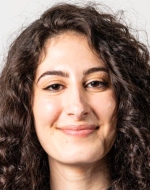
Alma Mater: UC Berkeley
MD/PhD Advisor: Colleen Clancy, Ph.D.
Research Interests: computational neuroscience, brain-computer interface, epilepsy, traumatic brain injury
About Ariana Moghbel:
Ariana’s research background is in the area of traumatic brain injury and astrocytic inflammatory pathways associated with blood-brain barrier perturbation. She completed her thesis research under the guidance of Dr. Helen Bateup (UC Berkeley), investigating novel treatments for tuberous sclerosis complex-related cortical abnormalities. Outside of the lab, she enjoys poetry, speculative fiction, and critical theory.

Alma Mater: UC Los Angeles
Research Interests: Basic and translational immunology and autoimmunity, social determinants of health in precision medicine
About Dhiraj Nallapothula:
Dhiraj is a first year in the MD/PhD program and loves immunology. His primary interest is in investigating autoimmune diseases but is open to anything related to immunology, including host-pathogen immunology. Dhiraj investigated sex bias in lupus and semi-invariant T cell biology in the Autoimmunity and Tolerance Laboratory run by Dr. Ram Raj Singh at UCLA. He hopes to continue investigating autoimmune diseases at the basic and translational levels during his training. Dhiraj is also passionate about studying how the social determinants of health can be integrated into precision medicine and hopes to get involved in this work through the UC Davis Center for Precision Medicine and Data Sciences. Dhiraj is also interested in teaching and hopes to find teaching opportunities throughout his training.
Dhiraj is an avid sports fan and loves his hometown Bay Area sports teams, having grown up in San Jose. Dhiraj also loves to run, hike, camp, and try out new restaurants (when there isn’t a pandemic). He also loves reading sci-fi short stories, long form journalism, struggles through the New York Times Crossword, and will never part ways with his HBO subscription.
Publications:
Self-glycerophospholipids activate murine phospholipid-reactive T cells and inhibit iNKT cell activation by competing with ligands for CD1d loading.
Halder RC, Tran C, Prasad P, Wang J, Nallapothula D, Ishikawa T, Wang M, Zajonc DM, Singh RR. Eur J Immunol. 2019 Feb;49(2):242-254. doi: 10.1002/eji.201847717. Epub 2018 Dec 18.PMID: 30508304
M-LoCUS: A Scalable Intervention Enhances Growth Mindset and Internal Locus of Control in Undergraduate Students in STEM.
Nallapothula D, Lozano JB, Han S, Herrera C, Sayson HW, Levis-Fitzgerald M, Maloy J. J Microbiol Biol Educ. 2020 May 29;21(2):21.2.46. doi: 10.1128/jmbe.v21i2.1987. eCollection 2020.PMID: 32528611
Heparin and aspirin combination therapy restores T-cell phenotype in pregnant patients with antiphospholipid syndrome-related recurrent pregnancy loss.
Wang M, Zhang P, Yu S, Zhou G, Lv J, Nallapothula D, Guo C, Wang Q, Singh RR. Clin Immunol. 2019 Nov;208:108259. doi: 10.1016/j.clim.2019.108259. Epub 2019 Sep 9.PMID: 31513884 Clinical Trial.
Potential utility of anti-TNF drugs in synovial chondromatosis associated with ankylosing spondylitis.
Yu S, Wu M, Zhou G, Ishikawa T, Liang J, Nallapothula D, Singh RR, Wang Q, Wang M. Int J Rheum Dis. 2019 Nov;22(11):2073-2079. doi: 10.1111/1756-185X.13734. Epub 2019 Oct 24.PMID: 31647182 Review.

Alma Mater: CSUS
Research Interests: Neurology, Neuroscience, and Neuropharmacology
About David Perekopskiy:
David was born and raised in Sacramento, CA. He studied at California State University, Sacramento where he graduated with a degree in biochemistry. After graduating he worked at the National Institute on Drug Abuse under Dr. Eugene A. Kiyatkin in the Behavioral Neuroscience Research Branch. There David used in-vivo methods to analyze fluctuations in brain oxygen levels induced by opioids such as heroin, fentanyl, and oxycodone. During the first two years of medical school, David was a co-director at Nadezhda clinic and was involved in the neurology SIG. Currently, he is in his third year of medical school prior to starting his Ph.D. in Molecular, Cellular and Integrative Physiology.
Publications:
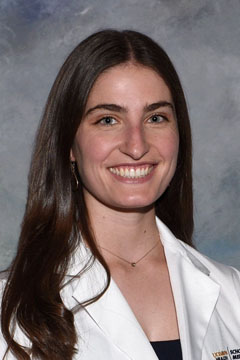
Megal Purl, MS1
Alma Mater: UC Los Angeles
About Megan Purl:
Megan graduated from UCLA in 2021, where she majored in Molecular, Cell and Developmental Biology. At UCLA, she joined the lab of Steve Jacobsen and spent 2.5 years studying molecular genetics and the interaction between the epigenome and genomic instability and its implications in cancer. She also competed on the UCLA Sailing Team and was a volunteer at the Ronald Reagan UCLA Medical Center. Post-graduation, Megan spent a year conducting research as a junior specialist in Dr. Wendell Lim’s lab at UCSF, developing engineered T cells that are programmed to target cancer cells. Megan hopes to continue exploring her interest in cancer and immunology at UC Davis. In her free time, Megan enjoys hiking, sailing, traveling, and spending time with her friends and family.
Research Interests: Cancer biology, immunology, synthetic biology, translational medicine
Publications:
Magdalena E. Potok, Zhenhui Zhong, Colette L. Picard, Qikun Liu, Truman Do, Cassidy E. Jacobsen, Ocean Sakr, Bilguudei Naranbaatar, Ruwan Thilakaratne, Zhanna Khnkoyan, Megan Purl, Harrison Cheng, Helena Vervaet, Suhua Feng, Shima Rayatpisheh, James A. Wohlschlegel, Ronan C. O’Malley, Joseph R. Ecker, and Steven E. Jacobsen. (2022) The role of ATXR6 expression in modulating genome stability and transposable element repression in Arabidopsis. Proceedings of the National Academy of Sciences, e2115570119.
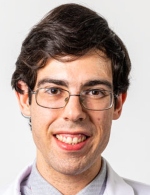
Mohammad Pourhosseinzadeh – GS2
Alma Mater: UC Davis
MD/PhD Advisor: Luis Fernando Santana, Ph.D.
Thesis Advisor: Mark Huising, Ph.D.
Research Interests: computational neuroscience, brain-computer interface, epilepsy, traumatic brain injury
About Mohammad Pourhosseinzadeh:
Mohammad was born and raised in the Greater Sacramento region and received his bachelor’s degree in Biochemistry and Molecular Biology from UC Davis. As an undergraduate he worked as a research assistant in Dr. Neil Hunter’s lab studying the molecular mechanisms of meiotic recombination in budding yeast. After graduating, Mohammad joined Dr. Mark Huising’s lab as a junior specialist, where he studied the mechanisms of pancreatic delta cell function. He enjoys baking and watching Netflix in his spare time.
Publications:
- Guarina L, Moghbel AN, Pourhosseinzadeh MS, Cudmore RH, Sato D, Clancy CE, Santana LF. Biological noise is a key determinant of the reproducibility and adaptability of cardiac pacemaking and EC coupling. J Gen Physiol. 2022 Sep 5;154(9):e202012613. doi: 10.1085/jgp.202012613. Epub 2022 Apr 28. PMID: 35482009; PMCID: PMC9059386.
- Huising MO, van der Meulen T, Huang JL, Pourhosseinzadeh MS, Noguchi GM. The Difference δ-Cells Make in Glucose Control. Physiology (Bethesda). 2018 Nov 1;33(6):403-411. doi: 10.1152/physiol.00029.2018. PMID: 30303773; PMCID: PMC6347098.
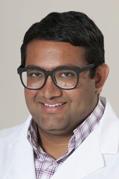
Niraj Punjya - GS4
Alma Mater: Stanford University
Thesis Advisor: David Segal, Ph.D. and Kyle Fink, Ph.D.
MD/PhD Advisor: Brian Jonas, M.D., Ph.D.
Graduate Group: Biochemistry, Molecular, Cellular and Developmental Biology (BMCDB)
About Niraj Punjya:
Niraj Punjya’s research interests include using gene therapies to treat genetic disorders. At UC Davis, he works with Dr. David Segal and Dr. Kyle Fink to study 22q11.2 deletion syndrome (DiGeorge syndrome) using CRISPR activation technologies to upregulate the deleted genes characterizing the disorder. His previous research experiences involved developing geneediting technologies to study myotonic dystrophy type 1 (DM1) in the Porteus lab at Stanford University. He is fascinated with the field of genome engineering and its promise to bring these technologies into a clinical setting to treat genetic diseases.
Publications:
Pavel-Dinu M, Wiebking V, Dejene BT, Srifa W, Mantri S, Nicolas CE, Lee C, Bao G, Kildebeck EJ, Punjya N, Sindhu C, Inlay MA, Saxena N, DeRavin SS, Malech H, Roncarolo MG, Weinberg KI, Porteus MH. Gene correction for SCID-X1 in long-term hematopoietic stem cells. Nat Commun. 2019;10(1):1634. doi:10.1038/s41467-019-09614-y
Hendel A, Kildebeck EJ, Fine EJ, Clark J, Punjya N, Sebastiano V, Bao G, Porteus MH. Quantifying genome-editing outcomes at endogenous loci with SMRT sequencing. Cell Rep. 2014;7:293-305. doi:10.1016/j.celrep.2014.02.040
Huang NF, Okogbaa J, Lee JC, Jha A, Zaitseva TS, Paukshto MV, Sun JS2, Punjya N, Fuller GG, Cooke JP. The modulation of endothelial cell morphology, function, and survival using anisotropic nanofibrillar collagen scaffolds. Biomaterials. 2013;34(16):4038-4047. doi:10.1016/j.biomaterials.2013.02.036
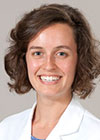
Anna Sadovnikova, MS3, PhD, IBCLC, MPH, MA, is a mammary gland biologist and clinical lactation specialist.
Low milk production is one of the main reasons mothers stop breastfeeding. Anna completed her PhD training in the Hovey Lab because she wanted to build upon the research skills she gained in public health and social entrepreneurship to become a leading physician-scientist in the lactation field. Through her doctoral work, Anna developed research expertise in comparative mammary gland biology, specifically in the genetic regulation of milk production.
During her dual-masters, Anna focused on international human donor milk banking policies and practices. Between 2014 and 2021, Anna was the CEO of LiquidGoldConcept, a company that specialized in simulation-based training of healthcare professionals in clinical lactation and maternal-child care. Anna maintains an active clinical practice where she provides advanced lactation care to pregnant and postpartum patients.
Awards and Honorable Mention
UC Davis Keller Pathways Fellow, 2015-2016
Publications and selected abstracts
Chuisano SA, Anderson OS, Weirauch K, Roper R, Phillips J, McCabe C, Sadovnikova, A. An Application of Kane’s Validity Framework to Evaluate Formative and Summative Assessment Instruments for Telesimulations in Clinical Lactation. Simul Healthc 2022. https://doi.org/10.1097/SIH.0000000000000653.
Anderson OS, Phillips J, Weirauch K, Chuisano SA, Sadovnikova A. Development of Team Behavior Skills and Clinical Lactation Competence Among Medical Students Engaging in Telesimulations with Standardized Patients. Breastfeed Med 2022. https://doi.org/10.1089/bfm.2021.0229.
Grabowski, A, Chuisano, SA, Strock, K, Zielinski, R, Anderson O, and Sadovnikova, A. A Pilot Study to Evaluate the Effect of Classroom-Based High-Fidelity Simulation on Midwifery Students’ Self-Efficacy in Clinical Lactation and Perceived Translation of Skills to the Care of the Breastfeeding Mother-Infant Dyad. Midwifery, June 30, 2021, 103078. https://doi.org/10.1016/j.midw.2021.103078.
Sadovnikova A, Garcia SC, Hovey RC. A comparative review of the extrinsic and intrinsic factors regulating lactose synthesis. Journal of Mammary Gland Biology and Neoplasia 2021.
Sadovnikova, A, Garcia, SC, Hovey, RC. A comparative review of the cell biology, biochemistry, and genetics of lactose synthesis. Journal of Mammary Gland Biology and Neoplasia 2021.
Anderson, O, Weirach, K, Roper, R, Phillips, J, Chuisano, A, McCabe, C, Sadovnikova, A. The Efficacy of Hybrid Telesimulation with Standardized Patients in Teaching Medical Students Clinical Lactation Skills: A Pilot Study. Breastfeed Med 2021. https://doi.org/10.1089/bfm.2020.0253.
Anderson OS, McCabe CF, Chuisano SA, Wicoff E, Grabowski A, Sadovnikova A. Virtual Experiential Learning: A Description of an Internship Framework That Engages Students to Build Public Health Competencies. Pedagogy in Health Promotion 2020:2373379920977537. https://doi.org/10.1177/2373379920977537.
Grabowski A, Anderson OS, Zielinski R, Scott M, Hammer L, Bassil M, Chuisano SA, Sadovnikova, A. Midwifery students better approximate their self-efficacy in clinical lactation after reflecting in and on their performance in the LactSim OSCE. Advances in Simulation 2020;5:28. https://doi.org/10.1186/s41077-020-00143-z.
Sadovnikova A, Chuisano SA, Ma K, Grabowski A, Stanley KP, Mitchell KB, Eglash, A, Plott, J, Zielinski, R, Anderson, A. Development and evaluation of a high-fidelity lactation simulation model for health professional breastfeeding education. International Breastfeeding Journal 2020;15:8. https://doi.org/10.1186/s13006-020-0254-5.
Sadovnikova A, Wysolmerski JJ, Hovey RC. Chapter 14 - The Onset and Maintenance of Human Lactation and its Endocrine Regulation. In: Kovacs CS, Deal CL, editors. Maternal-Fetal and Neonatal Endocrinology, Academic Press; 2020, p. 189–205. https://doi.org/10.1016/B978-0-12-814823-5.00014-3.
Sidhu S, Ma K, Sadovnikova A. Features and Educational Content Related to Milk Production in Breastfeeding Apps: Content Analysis Informed by Social Cognitive Theory. JMIR Pediatrics and Parenting 2019;2:e12364. https://doi.org/10.2196/12364.
Ecoiffier T, Sadovnikova A, Yuen D, Chen L. Conjunctival Lymphatic Response to Corneal Inflammation in Mice. J Ophthalmol 2012;2012. https://doi.org/10.1155/2012/953187.
Yuen D, Leu R, Sadovnikova A, Chen L. Increased Lymphangiogenesis and Hemangiogenesis in Infant Cornea. Lymphat Res Biol 2011;9:109–14. https://doi.org/10.1089/lrb.2011.0005.
Selected Abstracts
Sadovnikova, A, Sommers, J, Oberhelman, S. Preliminary results from a survey of the pharmacologic, herbal, and nutritional galactagogue prescribing practices of physicians in the United States and Canada. Academy of Breastfeeding Medicine. November 2020. (Abstract)
Sadovnikova, A, Mathews, AT, Garcia, S, Trott, J, Hovey, RC. Effect of a single high dose of dexamethasone on milk production, composition, and mammary gland gene expression. American Dairy Science Association. Cincinnati, Ohio. June 23-26, 2019. (Abstract).
Sadovnikova, A. Chuisano, S., Ma, K., McQueer, B., Larson, S., Watkins, M., Anderson, O. Breastfeeding Training of Hospital Staff in the United States: A Nationwide Survey of “Step 2” Implementation in Baby-Friendly Hospitals. Abstracts from The Academy of Breastfeeding Medicine 23rd Annual International Meeting San Francisco, California November 14–17, 2018. Breastfeeding Medicine 2018;13:S-1. https://doi.org/10.1089/bfm.2018.29106.abstracts.
Sadovnikova A, Zielinski R, Anderson O, Hammer L, Scott M, Ma K, et al. A Mixed-Methods, Innovative Pilot Program to Assess the Impact of Teaching Midwifery Students Hands-On Breastfeeding Management Using a Lactation Simulation Model. Journal of Obstetric, Gynecologic & Neonatal Nursing 2018;47:S6. https://doi.org/10.1016/j.jogn.2018.04.013.
Anderson OS, Connolly M, Sadovnikova A. Professional portfolio development in a nutrition capstone course to guide student self-regulated learning and curriculum assessment. The FASEB Journal 2017;31:975.3-975.3. https://doi.org/10.1096/fasebj.31.1_supplement.975.3.
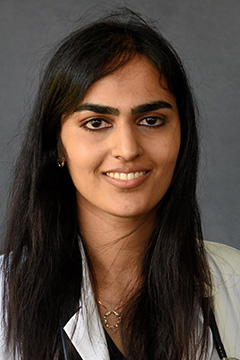
Ankita was born and raised in Davis, CA where the unique environment fostered her scientific curiosity and passion for medicine and community service. Her interest in scientific research was further cultivated as a high school researcher at the Center for Neuroscience here at UC Davis. She graduated from UC Berkeley with highest distinction and Honors in Molecular and Cell Biology. At Berkeley, Ankita developed an interest in using genome engineering tools such as the CRISPR-Cas system for therapeutic development and biological discovery. She worked on using CRISPR-Cas tools for functional genomic screening. After graduation, Ankita worked as a research associate in Dr. Feng Zhang’s lab at the Broad Institute of MIT and Harvard where she worked on using CRISPR screening to identify genes implicated in resistance to cancer immunotherapy which could serve as novel therapeutic targets and on the development of new high throughput sequencing platforms.
At UC Davis, Ankita is passionate about developing and improving next-generation therapeutics in the context of cancer and neurodevelopmental disorders as well as understanding how access to precision medicine and preventative screening can be improved. She is also interested in identifying the underlying biological basis and mechanisms of disease processes that can be harnessed in the context of treatment. In her free time, Ankita enjoys watching sports, playing and listening to music, watching movies, and baking.
Awards and Honors:
I.L. Chaikoff Memorial Award - 2019 - Award for excellence in undergraduate research and academics at UC Berkeley
Phi Beta Kappa - Elected in 2019
Selected Publications:
Joung J, Kirchgatterer PC, Singh A, Cho JH, Nety SP, Larson RC, Macrae RK, Deasy R, Tseng YY, Maus MV, Zhang F.
CRISPR activation screen identifies BCL-2 proteins and B3GNT2 as drivers of cancer resistance to T cell-mediated cytotoxicity.
Nat Commun. 2022 Mar 25;13(1):1606. Doi. 10.1038/s41467-022-29205-8 PMID: 35338135.
Singh, A., “Construction of a dense genetic map in Cassava”. Honors thesis, UC Berkeley Department of Molecular and Cell Biology, Daniel Rokhsar advisor (2019).
Pyles, B., Singh, A., Lee, R., and Segal D. Delivery of Artificial Transcription Factors as an Approach to Prenatal Treatment.
In Molecular Therapy, vol.26, no. 5, (2018). pp. 423-424.
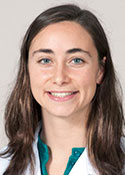
Annica Stull-Lane – MS3
Alma Mater: Oberlin College
Thesis Advisor: Renee Tsolis, Ph.D.
MD/PhD Advisor: Jay V. Solnick, M.D., Ph.D.
Graduate Group: Integrative Pathobiology
About Annica Stull-Lane:
Annica is fascinated by our microbial world, from the commensal microbiome to pathogens of infectious disease. Microbiological laboratory research became her passion over time through work and research during her liberal arts education at Oberlin College, via a postbaccalaureate APHL/CDC Emerging Infectious Diseases Laboratory Fellowship, and at a startup biotech position. Annica is excited to train at UC Davis, furthering this work that will guide her towards her career goal: to serve as a physician-scientist who heads an academic lab; teaches and mentors; and collaborates with scientists, physicians and patients. She is interested in studying infectious diseases of global and public health importance, elucidating molecular mechanisms of disease, and addressing complex health problems through the One Health approach. In the clinic, Annica values working with underserved populations, improving health outcomes through teamwork and dedication. Ultimately, she looks forward to collaborating with creative thinkers to alleviate health disparities through discovery. Apart from her clinical and research interests, Annica enjoys hiking, cooking, and singing.
Publications:
Stull-Lane A, Lokken-Toyli KL, Diaz-Ochoa VE, Walker GT, Cevallos SA, Winter ALN, et al. Vitamin A supplementation boosts control of antibiotic-resistant Salmonella infection in malnourished mice. PLoS Negl Trop Dis. 2020;14(10).
Lokken KL, Stull-Lane A, Poels K, Tsolis RM. Malaria Parasite-Mediated Alteration of Macrophage Function and Increased Iron Availability Predispose to Disseminated Nontyphoidal Salmonella Infection. Infect Immun. 2018;86(9).
Delisle J, Mendell NL, Stull-Lane A, Bloch KC, Bouyer DH, Moncayo AC. Human Infections by Multiple Spotted Fever Group Rickettsiae in Tennessee. Am J Trop Med Hyg. 2016;94(6):1212-7.
Baumblatt JA, Dunn JR, Schaffner W, Moncayo AC, Stull-Lane A, Jones TF. An outbreak of bed bug infestation in an office building. J Environ Health. 2014;76(8):16-8.
Patterson JL, Stull-Lane A, Girerd PH, Jefferson KK. Analysis of adherence, biofilm formation and cytotoxicity suggests a greater virulence potential of Gardnerella vaginalis relative to other bacterial-vaginosis-associated anaerobes. Microbiology. 2010;156(Pt 2):392-9.
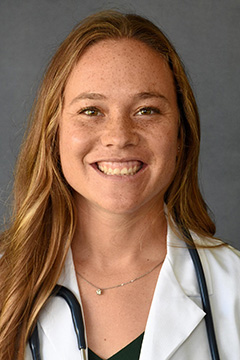
Selected Pre-PhD Publications:
Burnett LA, Hochstedler BR, Weldon KC, Wolfe AJ, Brubaker L. Recurrent urinary tract infection: Association of clinical profiles with urobiome composition in women. Neurourology and Urodynamics. 2021; 40: 1479- 1489. https://doi.org/10.1002/nau.24707
Taylor BC, Weldon KC, Ellis RJ, Franklin D, Groth T, Gentry EC, Tripathi A, McDonald D, Humphrey G, Bryant M, Toronczak J, Schwartz T, Oliveira MF, Heaton R, Grant I, Gianella S, Letendre S, Swafford A, Dorrestein PC, Knight R. 2020. Depression in individuals coinfected with HIV and HCV is associated with systematic differences in the gut microbiome and metabolome. mSystems 5:e00465-20. https:// doi.org/10.1128/mSystems.00465-20.
Taylor BC*, Weldon KC*, Ellis RJ, Franklin D, McDonald D, Humphrey G, Bryant M, Toronczak J, Schwartz T, Iudicello J, Heaton R, Grant I, Gianella S, Letendre S, Swafford A, Dorrestein PC, Knight R. 2020. Reduced independence in daily living is associated with the gut microbiome in people with HIV and HCV. mSystems 5:e00528-20. https://doi.org/10 .1128/mSystems.00528-20.
Vargas F*, Weldon KC*, Sikora N, Wang M, Zhang Z, Gentry EC, Panitchpakdi MW, Caraballo-Rodríguez AM, Dorrestein PC, Jarmusch AK. Protocol for community-created public MS/MS reference spectra within the Global Natural Products Social Molecular Networking infrastructure. Rapid Commun Mass Spectrom. 2020 May 30;34(10):e8725. doi: 10.1002/rcm.8725. PMID: 31930757.
Wang M, Jarmusch AK, Vargas F, Aksenov AA, Gauglitz JM, Weldon KC, Petras D, et al. Mass spectrometry searches using MASST. Nat Biotechnol. 2020 Jan;38(1):23-26. doi: 10.1038/s41587-019-0375-9. PMID: 31894142; PMCID: PMC7236533.
Quinn RA, Melnik AV, Vrbanac A, Fu T, Patras KA, Christy MP, Bodai Z, Belda-Ferre P, Tripathi A, Chung LK, Downes M, Welch RD, Quinn M, Humphrey G, Panitchpakdi M, Weldon KC, Aksenov A, da Silva R, et al. Global chemical effects of the microbiome include new bile-acid conjugations. Nature. 2020 Mar;579(7797):123-129. doi: 10.1038/s41586-020-2047-9. Epub 2020 Feb 26. PMID: 32103176; PMCID: PMC7252668.
Fang X, Vázquez-Baeza Y, Elijah E, Vargas F, Ackermann G, Humphrey G, Lau R, Weldon KC, et al. Gastrointestinal Surgery for Inflammatory Bowel Disease Persistently Lowers Microbiome and Metabolome Diversity, Inflammatory Bowel Diseases, Volume 27, Issue 5, May 2021, Pages 603–616, https://doi.org/10.1093/ibd/izaa262


